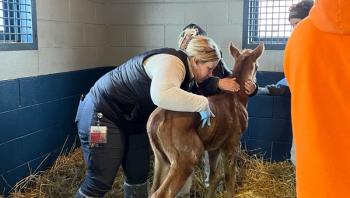
BCVMA cites mounting financial troubles as legal battle presses on
A record-length court battle based on allegations of discrimination cost the British Columbia Veterinary Medical Association millions of dollars to defend, and now members are pledging to raise another $400,000 through a membership fee levy
BRITISH COLUMBIA, CANADA — A record-length court battle based on allegations of discrimination cost the British Columbia Veterinary Medical Association (BCVMA) millions of dollars to defend, and now members are pledging to raise another $400,000 through a membership fee levy.
And more legal wrangling is not completely out of the question as BCVMA moved to suspend the license of Dr. Hakim Bhullar, who has been leading the legal challenge against the veterinary association. (Provincial veterinary associations in Canada are the equivalent of state veterinary medical boards in the United States.)
In late 2009, Bhullar was found guilty through an internal BCVMA investigation of 17 charges, ranging from an allegedly botched debarking operation in 2003 to unethical marketing and poor record-keeping. Bhullar owns a chain of competitively priced animal hospitals here. His license was suspended, but Bhullar calls the charges "unbelievable." He is planning to appeal the decision.
Skirmishes with BCVMA are nothing new for Bhullar, who leads a group called B.C. Veterinarians for Justice. He and other Indo-Canadian veterinarians have been alleging discrimination and price fixing by BCVMA for seven years, resulting in what Bhullar calls the longest-running human-rights battle in North American history. BCVMA refutes those claims.
Issues first arose between Indo-Canadian veterinarians and BCVMA in 2002 when strict language standards for licensing were put in place. Foreign-born veterinarians believed the English-language requirement was mandated as a means to block entry into practice. The ruling and a spate of investigations resulted in about 50 discrimination complaints against BCVMA, many of which were dropped before a resolution. Some were ordered dropped by the Supreme Court, and those veterinarians who filed the complaints were ordered to cover BCVMA's legal costs.
BCVMA abandoned its English-language requirement in April 2009 because of a new nationwide mobility agreement between all the Canadian provinces. But BCVMA Chief Executive Officer Valerie Osborne denied charges of discrimination.
"There is no issue with the Indo-Canadian veterinarians, per se. Those [lawsuits] are brought by a very tiny group of members who happen to be Indo-Canadian," she says. "We don't get involved in pricing issues at all. As long as veterinarians are delivering services to the standard, they are entitled to charge what they need to thrive and survive."
Allegations of targeting Indo-Canadian veterinarians in investigations are "simply not true," she says, adding that she can't provide numbers to back her claim because the association's statistics database on complaints is being "revamped" and was therefore unavailable.
Osborne was unavailable for comment on Bhullar's license revocation, and there was no answer at BCVMA offices on several attempts at press time. The office's voicemail box was full.
Cash strapped
The money crunch at the BCVMA is very real, according to the association's annual report, which states that "expenses have been much higher than forecast due to legal expenses for the complaints and discipline hearings ... . There continue to be unresolved legal contingencies."
"It is anticipated that the current pressure of hearing costs will diminish as the few extant matters reach conclusion and the association collects on cost awards, at which time expenses will return to a more historical norm," the report continues. "In the interim, continuing operations of the association are dependent on appropriate member fee levels and any necessary levies that the council has the authority to impose."
Current BCVMA President Ray Snopek, at the time BCVMA's secretary treasurer, also wrote in the annual report that the BCVMA "continues to be burdened by the high costs of regulatory and disciplinary matters evolving from our mandate to protect the public. Legal costs have created financial deficits over the last four years, and another deficit is predicted for 2009/2010."
The levy system was chosen by BCVMA members to meet the budget shortfall, instead of a large increase in membership dues. The levy was set to go into effect earlier in 2009, but was delayed and reduced because of an influx of about $200,000 from court awards related to the legal battle, Snopek says.
The levy will raise about $400,000 for BCVMA, and its insurance company has already paid out about $2.8 million to cover legal costs.
New hearings have been delayed at the request of BCVMA while the association secures additional funding to cover its legal costs, according to tribunal records.
Newsletter
From exam room tips to practice management insights, get trusted veterinary news delivered straight to your inbox—subscribe to dvm360.




